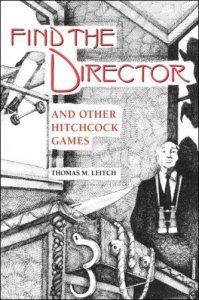Find the Director and Other Hitchcock Games (1991) by Thomas M. Leitch
 | |
| Thomas M. Leitch | |
| University of Georgia Press (2009) | |
| ISBN 0820333492 | |
Product Links
Synopsis
Among the pleasures an Alfred Hitchcock film affords its viewers is the chance to spot the director in one of his signature cameo appearances: as part of a crowd in "The Lodger", as a card player in "Shadow of a Doubt" or as the illustration for a newspaper ad in "Lifeboat". Such cameos, argues Thomas Leitch are but the most obvious in a whole series of cinematic "games" devised by Hitchcock to engage, delight, manipulate, and challenge his audiences. Developing a model of narrative based on game theory, Leitch offers a new explanation for the distinctiveness and power of Hitchcock's films. Games such as the cameo appearances, the author says, allow the audience simultaneously to immerse itself in the world created by the narrative and to stand outside that world and appreciate the self-consciously suspenseful or comic techniques that make the movie peculiarly Hitchcockian. A crucial aspect of the director's gameplaying, Leitch contends, emerges in the way he repeatedly redefines the rules.
Leitch divides Hitchcock's career into key periods in which one set of games gives way to another, reflecting changes in the director's concerns and the conditions under which he was making movies at the time. By repeatedly redefining what it means to be a Hitchcock film, Leitch contends, the director fosters a highly ambivalent attitude toward such concerns as the value of domesticity, the loss of identity, and the need for - and fear of - suspenseful apprehension. Hitchcock's games with his audience are of a serious nature. In alternately challenging and confirming the viewers' sense of the rules, this peerless storyteller simultaneously challenged and confirmed the participants sense of themselves.
